In this episode of the Website Investing podcast, Richard speaks with Ace Chapman on why he views funds as the best structure for buying assets that generate an income, such as websites.
In this part 1, free subscribers get the first ~30 minutes of the conversation; paying subscribers also get part 2 in their RSS feed. As is typical, part 2 elicits more insights as we get deeper into the conversation.
EPISODE SPONSORS
🔥 Smash Digital - an SEO growth agency with actual skin in the game, ranking their own portfolio of profitable businesses, and offering the exact same services to clients. Check. Them. Out.
🔥 Niche Website Builders - a hands-off approach to outsourcing your content. Packages include keyword research & high-converting review templates. Get 10% off your first order.
Part 1 Show Notes
Ace’s Journey
How It All Started
Ace was approached by a friend one day asking if they could invest in what he was doing. The caveat, however, was that they could only do so through a fund structure. Ace didn’t know anything about it at the time, but after the investment, he found out why fund structures were so popular for buying and selling businesses.
Tax benefits, being able to build up a track history, and having the ability to roll over funds were just some of the benefits that Ace realized were available through fund structures.
Ace then decided to develop his fund and make it bigger. Starting with a $500K fund, he was able to continuously grow it to $12M today, with plans to grow it even further.
Advantages of Smaller Funds
The returns of smaller funds are a lot better than bigger funds, because you don’t have to put as much money to work. You can also cherry-pick the best opportunities and be choosy with your investors and get better terms.
Incubating Funds
Ace used to train people on how to buy businesses so he himself could invest in their businesses. He then realized that he could do the same thing with funds. As a result, the Private Equity Fund Incubator was born. Ace’s concept for this is to build a network of funds that work together. There are currently 3 exciting funds in the Incubator. He is also a fund manager of multiple funds.
Creating an Ecosystem of Players in the Industry
Missing Pieces
When you start a private equity fund, there should be an ecosystem of people around you to make it work, like debt funds, investment banks, and individual dealmakers. The industry doesn’t have much of these people, with lots of pieces missing. Ace’s overall goal is to create a more mature ecosystem where there are publicly-traded companies that are involved in this space. A domino-effect would then ensue, as Ace and his team would use stocks to acquire things, and these stocks are disseminated through the industry; and after a while, other companies would start to go public and other funds would also come in with plenty of interaction taking place among them all.
An Example
Major private entity acquisitions these days are not made by a single fund. Multiple funds are involved. Recently, a series of circular transactions among Softbank, Credit Suisse, and a third fund took place, and these transactions had the effect of making these three funds look good in the public eye. Their stock values went up in the process.
Being a Fund Manager
Timeframes
Ace’s funds usually have a timeframe of 5 years with various lengths of extensions ranging from 1 to 5 years. Each fund has a certain time period where you are focused on raising capital and ideally closing deals before the fund even exists. After this would be a period in the middle where you are operating and growing the fund. The last period is exiting the fund.
Are Funds Just For Buying Businesses?
Ace says that the whole idea of a private equity fund is to buy private non-trading or non-floating assets, and not just buying businesses. These funds can include private debt, royalties, actual businesses, minority equity, convertible notes, and more.
Using an Angel Investor Perspective
Ace suggests that one should look at funds the same way as an angel investor or financier would. They would look at and negotiate deals, and also come up with creative structures. They also think that it isn’t that safe to go buy a business. Though buying a business is safer than starting one, the smartest route is to have different types of assets that produce income and cash flow. In the end, the goal is to acquire income and not businesses.
Looking to the Future
The next decade is exciting for Ace, because people are being pushed into other roles in the ecosystem. There should be a whole community of people talking about being these angel investors or financiers. And whereas angel investors put their own money in:
The financier strategy is to acquire income using as little of their own money as possible.
Involvement in Operations as an Adviser
Ace’s involvement in operations as a fund manager is limited to being an adviser, which he thinks is the most valuable role because of their valuable insight and understanding of businesses, deals, and generally how things work. Also, by not being bogged down by operations, advisers are able to learn and understand more, allowing them to get better deals in the long run.
Becoming an Adviser to a Fund
By being an adviser to someone who has a fund, you would be able to use your skills and expertise in finding good deals and content websites to connect them with the fund. You may not make much income for your first time, but you can get referred to other funds in the process. What can also happen is that you can end up being listed as a general partner and end up with equity.
Content Site Funds
Some people are running funds concentrated on content websites such as Ewen at Owl Mountain (on the podcast) and Michael from Domain Magnate. But in general, it’s a big and diverse space where funds can take in various businesses.
Play by the Rules
With website investing, brokerages and marketplaces are not regulated and we’re still somewhat in the wild west days. Whereas with funds and solicitation there are definitely rules, and if you break them it won’t go well for you (see latest video by Emilia on Income Store below):
Connect with Ace
Check out Ace’s Acquisitions Program and Youtube Channel.
Episode 12 Part 2
In part 2 of this conversation we discuss:
The differences between having a diverse vs focused fund
The typical fund deal size for Ace and the number of deals within each
The benefits of focussing a fund on a single vertical
Micro private equity vs bigger funds and the no man's land for content site sellers
How Ace and his clients are picking up deals for < 2 years earnings
Part 2 is for paying subscribers, you can access by hitting the button below.
Enjoyed this episode or have any questions? You can leave a comment at the bottom of the web version of this post.
Cheers
Richard Patey (Host) & Avi Silverberg (Producer)







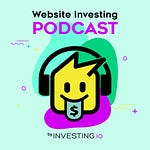

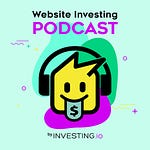
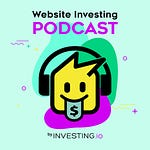
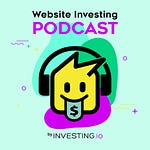
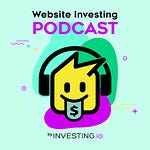

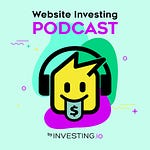
Ep12 Part 1: Ace Chapman on Micro Private Equity